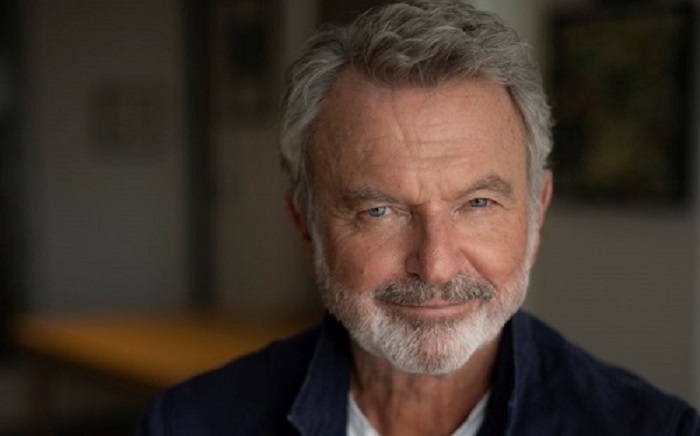Actor Sam Neill reveals 'aggressive' blood cancer diagnosis
RNZ
20 March 2023, 12:17 AM
 Sam Neill says "Uncharted with Sam Neill" was the greatest adventure of his life
Sam Neill says "Uncharted with Sam Neill" was the greatest adventure of his lifeNew Zealand actor and Central Otago winemaker Sam Neill has revealed he is being treated for stage three lymphoma, which was diagnosed about a year ago.
The star of The Piano and the Jurassic Park movies made the revelation in his upcoming memoir, Did I Ever Tell You This? which is being released next week.
"I suddenly was stopped in my tracks," he told RNZ's Kim Hill today about the news he received last year.
"I was told that I had stage three lymphoma of some kind, it's non-Hodgkin's ... and it was an aggressive thing and I would need to undergo chemotherapy pretty quickly, which I did."
An initial round of chemotherapy to treat the cancer was not successful, he said, however his cancer is now in remission after he was put on a new treatment regime.
"I am in remission and that's why we are talking."
His treatments were ongoing, Neill said.
"It knocks you round but I'm not complaining," he added, saying that one of his doctors had told him that without the new form of chemotherapy, he would not have finished his book.
"I think the assumption is I'm now a sort of lab rat."
The treatment for his cancer was gruelling, he said, but the diagnosis had also taught him "how great it is to be alive".
"The first couple of days after the chemo are pretty miserable, to be honest, and then on day three I start to perk up and then I feel just wonderful again."
Neill said he began writing his memoir during his treatments as he suddenly found himself "marooned" in his flat with no work to do.
"I'm used to going to work, I'm used to counting, I'm used to doing things - more or less - with my brain, and I had nothing to exercise it with, so I started to write down stories."
He said after a time, he realised the stories collectively seemed to have a narrative of some kind.
The writing took Neill about four or five months, he said. He began the new chemotherapy treatment just before he finished, and "almost immediately went into remission".
"So I've been on remission for about....eight months now."

Actor Sam Neill has revealed he has cancer
He said he sat on his book for a couple of months after he finished writing it, until a friend of a friend convinced him to send the manuscript to some publishers.
"I got an immediate response from all three publishers saying 'we love your book and we really want to publish it'....that really cheered me up no end."
The book was written "against the clock", meaning he had perhaps been "a bit indiscreet" about one or two people, Neill said, and he admitted he was anxious too, about all the friends he had left out.
"I actually didn't know how long I had to live, so it was written probably more hurriedly than I would have otherwise."
But the rush lent the book a sense of spontaneity, he added.
"I would normally be a bit more ponderous, I think."
Neill said he had now begun working again, "which I have to say is absolutely fantastic after 12 months of not working; that's a wonderful thing".
He also planned to do some more travel, he told RNZ, and hoped to reprise his role as Brett Colby in a second series of the Australian television drama The Twelve, in the second half of the year.
"I enjoyed that character so much, he's the one bloke coming back for the second series."
Treatment options 'changing all the time'
A former cancer patient and patient advocate said Neill's cancer diagnosis shed light on how quickly treatments changed.
David Downs said Neill had done all the right things in addressing his cancer diagnosis.
"He's looking at the research and hopefully finding out what options are coming down the line for us, because it's changing all the time," he said.
"Patients should keep themselves a bit informed about the clinical trials and the new research that's happening because it is pretty exciting."
However access to more experimental cancer treatments was often difficulty and costly, Downs said.
An Auckland University cancer researcher said Neill's cancer treatment was likely part of clinical trials.
Peter Browett said newer treatments for lymphoma are still undergoing development.
"Internationally, there's obviously greater access to these treatments through clinical trials but a lot of these treatments are still in an evaluation stage so they're not readily available as a standard of care."
Browett said the type of cancer Neill had is often aggressive and fast growing.







